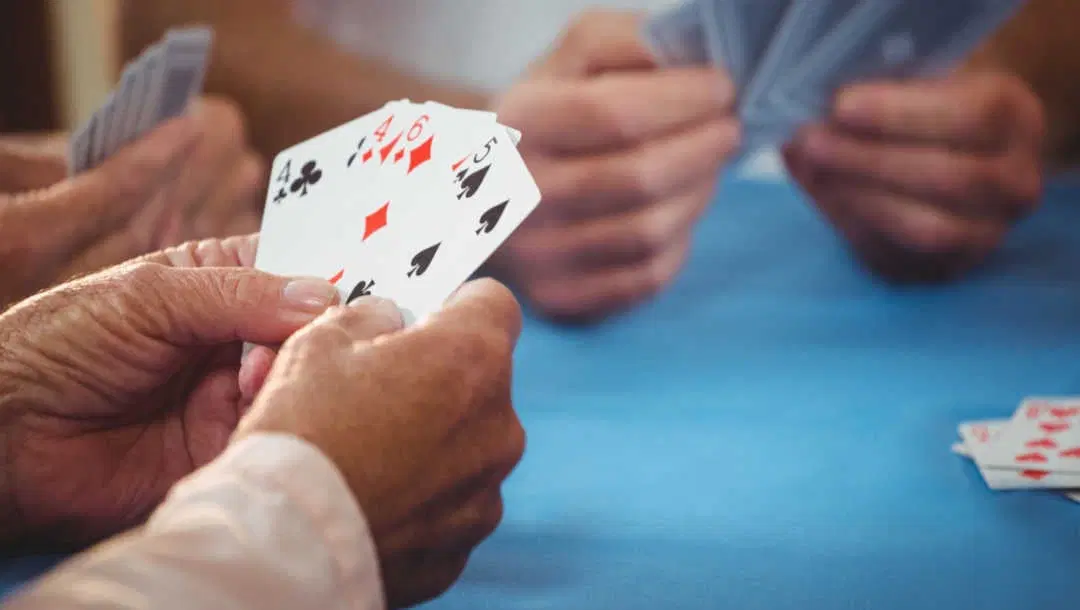
Card games are easy and fun ways for families and friends to spend quality time together, providing hours of enjoyment at any location. Card games provide entertainment while simultaneously being portable enough for play on any surface or device imaginable, making them popular across age ranges and generations alike. Card games provide endless hours of enjoyment that provide great family bonding experience.
Players gain cards by matching pairs on the table with cards in their hand or creating combinations on table cards and calling out their values.
Origins
There is much debate as to the origins of casino card games. Some experts speculate that these card games originated in Asia before making their way over to Europe; while others suggest European travelers learned them while travelling and brought them home as souvenirs; still others speculate they may have originated as part of traditional chess or dice games.
Card gambling requires intense concentration. Players need to memorize numerous cards and make complex decisions while competing with opponents of varying skill levels – which requires discipline and patience. Playing cards can provide an escape from everyday stresses while giving a sense of control thanks to fixed rules; some even claim it can improve short-term memory! Various European card games such as Skat, Bezique, Klaberjass and Schnapsen exist today as popular examples.
Rules
Card games provide a fun and entertaining way to pass the time, while at the same time building skills that can benefit us in everyday life. They encourage fairness in play, celebrating victories appropriately and resolving differences; additionally many card games require strategy and help develop problem-solving capabilities in players.
Cards are small and portable, making them suitable for use in various situations. Their versatility extends beyond everyday play: cards can be adapted for various games and variants that cater to players of various skill levels – from competitive patiences (solitaire, klondike) and totalizing games such as cribbage to canasta and casino (kasino). All require skill and strategy rather than luck or chance: examples include solitaire (solitaire/klondike/klondike), totaling games where total totals must be reached (cribbage/canasta); others require combinations of card values which must only be captured as one unit (casino/kasino); otherwise one player must trail behind another player (casino/kasino).
Variations
Card games can be tailored to accommodate various numbers, ages, and regions of players, as well as providing various strategies for success, such as comparing cards (poker/whist) or discarding valid combinations (gin rummy).
Card games often involve teamwork, which can help build trust and create a sense of camaraderie – particularly helpful for individuals suffering from loneliness. Furthermore, playing card games can teach people how to deal with loss.
Few card games feature formalized rules and international tournaments; most, however, are folk games with regional or local rules varying. Most use 52 cards; however other sizes or colors can also be employed; games usually last only minutes at most with multiple deals going down in quick succession to provide frequent opportunities for socialization between deals as well as rapid turnarounds of fortune.
Betting options
Are You Wanting to Win at Card Gambling Games Online or Offline? For maximum success when it comes to card gambling games, combining strategy and risk-taking are crucial ingredients for success. Online betting provides more variety and superior odds compared to offline casinos; but be sure to experiment with multiple card games until you find what works for your style of play!
Blackjack is a universally beloved card game with betting options, hailing from its casino roots as European blackjack, vingt-et-un, and pontoon. Bettors bet either on their hand (Player Hand), banker Hand (Banker Hand), or tie – each option having its own betting signal such as scraping against the table or tapping cards with finger. Doubling down is possible by increasing bet by 100% but only taking one additional card when doubling down.
Payouts
Playing card games for money may technically constitute gambling, yet many players enjoy them simply for fun. Some card games require extreme concentration from players as every hand they deal must be carefully considered before being played out; as a result, these activities often improve short-term memory as well as teaching discipline and patience.
Card games also give people a sense of control, particularly on days when life feels out of their hands, which can help manage stress more effectively. Furthermore, playing card games helps build self-esteem and confidence through teaching players to overcome obstacles; sometimes people use cards games even as an escape from real-life challenges!
